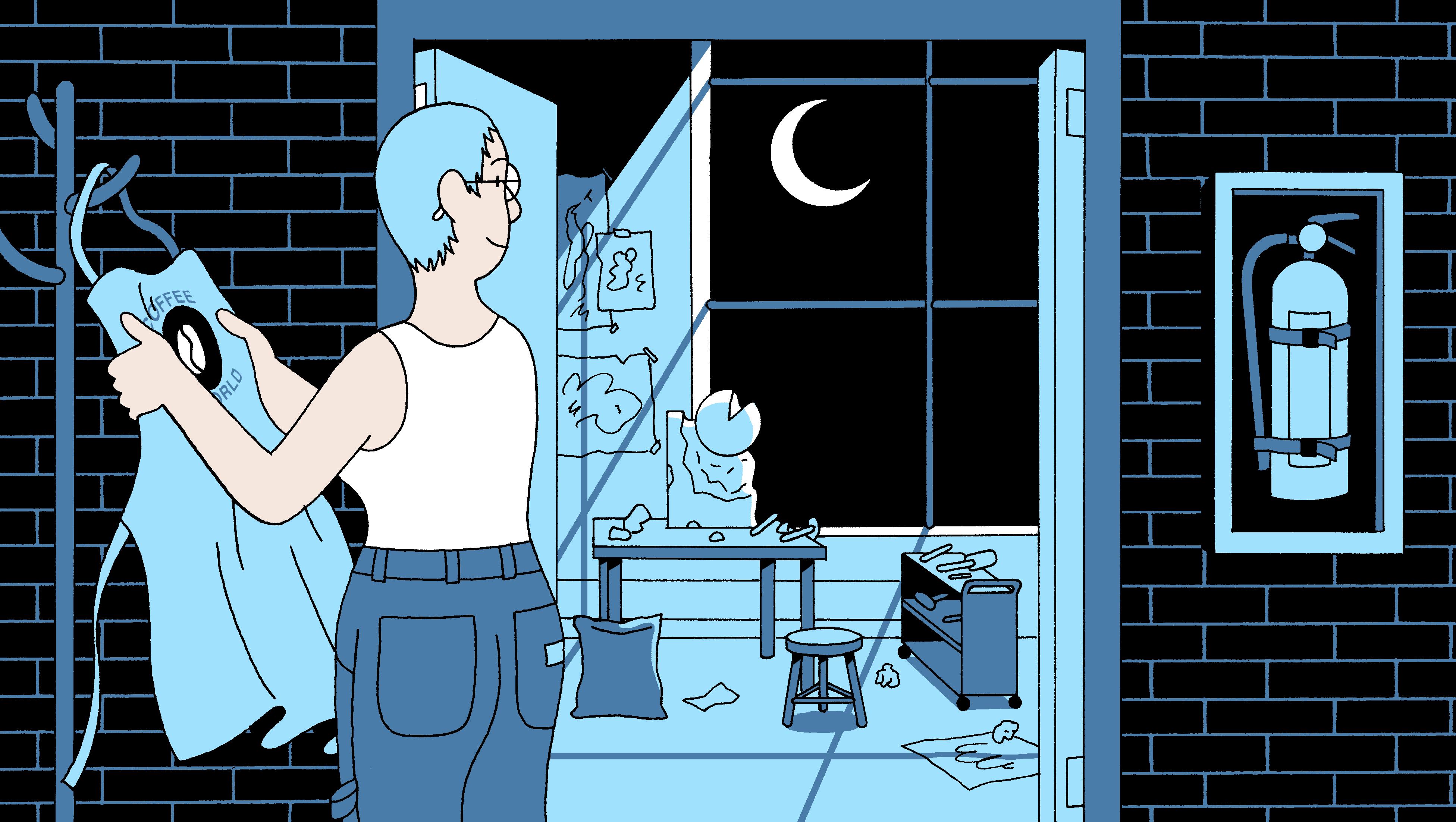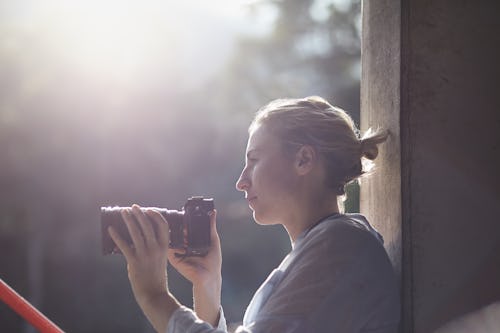
“Do what you love and you’ll never work a day in your life,” is classic dad wisdom, and it makes good common sense. What could be better than getting a paying job making art or music?
The irony here is that this approach to life doesn’t account for how much emotional labor goes into “doing what you love” for a living. More and more of my artist friends are ditching their creative 9-to-5s for seemingly mundane day jobs, and they seem pretty happy about it. As a person who has a job doing what I love — writing— I am confused by this. Is the grass really greener when your day job isn’t related to your art? I asked millennials and Gen Zs about the underrated merits of not linking your creative work to your income.
Almost every professional artist I spoke with told me that one of the biggest reasons they keep a day job is because it lets them preserve their creative energy. “I prefer working a non-artsy job that's interrupted by organic bursts of inspiration that I know I'll get to sink my teeth into later that night,” says Natasha Teymourian, a printmaker and poet in the Bay area who works as a marketing manager by day. Because Teymourian isn’t using up her creative juices at work, she can let them flow when she gets home.

Tal Shelef, an artist in Toronto who works as a realtor during the day, agrees. But artists also need to be careful about the jobs they choose. Shelef says that the ideal day job needs to be one that doesn’t rob you of the time and energy you need to create. In other words, they shouldn’t be demanding in a way that mentally exhausts you, since that energy is important to preserve.
The reality is that it’s really hard to get a job doing exactly what you love, and doing a job that’s close-but-not-quite can be draining and frustrating. “I would rather work a day job that has nothing to do with photography, than work a photography job that I didn’t enjoy,” says Mike Miller, a Wyoming-based photographer who works as an editor. “I’ve worked quite a few photography jobs, especially when I was younger, and while some of them were great — most of them felt like they were changing my relationship with the medium for the worse." In other words, working photography jobs that he didn’t love changed his art, and that’s a compromise that he’s just not willing to make.
Also, a lot of creative jobs are part-time, freelance, or contract work, which isn’t always the best way to maintain financial stability. “The stable paycheck and benefits are everything,” says Lillie Marshall, a cartoon artist in Boston who works as a teacher. At the beginning of 2020, Marshall lost all of her creative income because of the pandemic, but she was able to stay stable because of her teaching gig. “It made me realize how much I appreciated having a day job and the stability it has afforded me,” Marshall says.
The practical reasons that artists keep day jobs are so important, but let’s be honest, most folks aren’t making art for practical reasons. “Art washes away from the soul the dust of everyday life,” Pablo Picasso famously said. And, well, the dust of everyday life is tainted by capitalism and the desires of the dominant culture, and a lot of artists feel like not taking money for their work keeps it free from having to use their work to rep for the status quo. “I don't have to compromise on what I create for my art,” Marshall explains. “I've come to realize that if you want to make money on art, compromise is necessary — and I want my art to be 100% me and 100% joy.”







